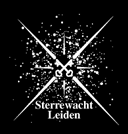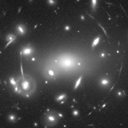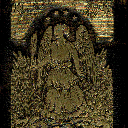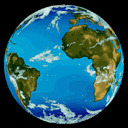|
|
 |
|
|
|
 |
|

The only real & serious computers in this world are being built by Apple. Life's too short to bother with anything else. I only write programs for the Macintosh family, and market share be damned. You're welcome to try my products for free (under the GNU Public Software License, with the usual author's copyright ). Enjoy, and let me have your comments please.
 |
 |
 |
 |
|
 |
There is so much free-and-awesome Mac software out there, that people (such as I) who use it, are honour bound to contribute something in return. This modest page is my contribution. It contains a few older programs I wrote when Macs had only small b/w screens, and one which uses full colour and fast processing. Most of it derives directly from my field of study (astrophysics), but maybe more educational things will be posted.
Licensing: The software carries the usual author's copyright and is distributed under the GNU Public Software License.
Note on downloading: The software is stored on the public FTP disk maintained by Sterrewacht Leiden. All the usual rules for courtesy and decency apply. The programs are self-extracting archives compressed with StuffIt™ 5.0 and written in MacBinary II (.bin) format.
If you have problems or comments, please send them to me at the above eMail address.
![]() A program that simulates the collision of two galaxies, using
the type of approximation that was invented in 1972 by Alar and
Juri Toomre.
A program that simulates the collision of two galaxies, using
the type of approximation that was invented in 1972 by Alar and
Juri Toomre.
![]() A program that simulates the gravitational interaction in a model
star cluster. To keep the integration simple and running in real
time, a plain leapfrog integrator is used. On a 300 MHz PowerMac,
up to 600 stars can be used for a reasonable simulation. If you
want to allow more, you must change the setting in the STR# resources
using a resource editor such as ResEdit.
A program that simulates the gravitational interaction in a model
star cluster. To keep the integration simple and running in real
time, a plain leapfrog integrator is used. On a 300 MHz PowerMac,
up to 600 stars can be used for a reasonable simulation. If you
want to allow more, you must change the setting in the STR# resources
using a resource editor such as ResEdit.
![]() A program that simulates the motion of three equal-mass stars
in a plane. It's old but sturdy, as it was originally designed
for the MacClassic in black-and-white. Localized versions are
available in English,
German,
French,
Spanish,
Swedish,
and Finnish.
A program that simulates the motion of three equal-mass stars
in a plane. It's old but sturdy, as it was originally designed
for the MacClassic in black-and-white. Localized versions are
available in English,
German,
French,
Spanish,
Swedish,
and Finnish.
![]() A program that simulates the motion of two point masses (Newtonian
Kepler orbits). It's old but sturdy, as it was originally designed
for the MacClassic in black-and-white. Localized versions are
available in English,
German,
French,
Swedish,
and Finnish.
A program that simulates the motion of two point masses (Newtonian
Kepler orbits). It's old but sturdy, as it was originally designed
for the MacClassic in black-and-white. Localized versions are
available in English,
German,
French,
Swedish,
and Finnish.